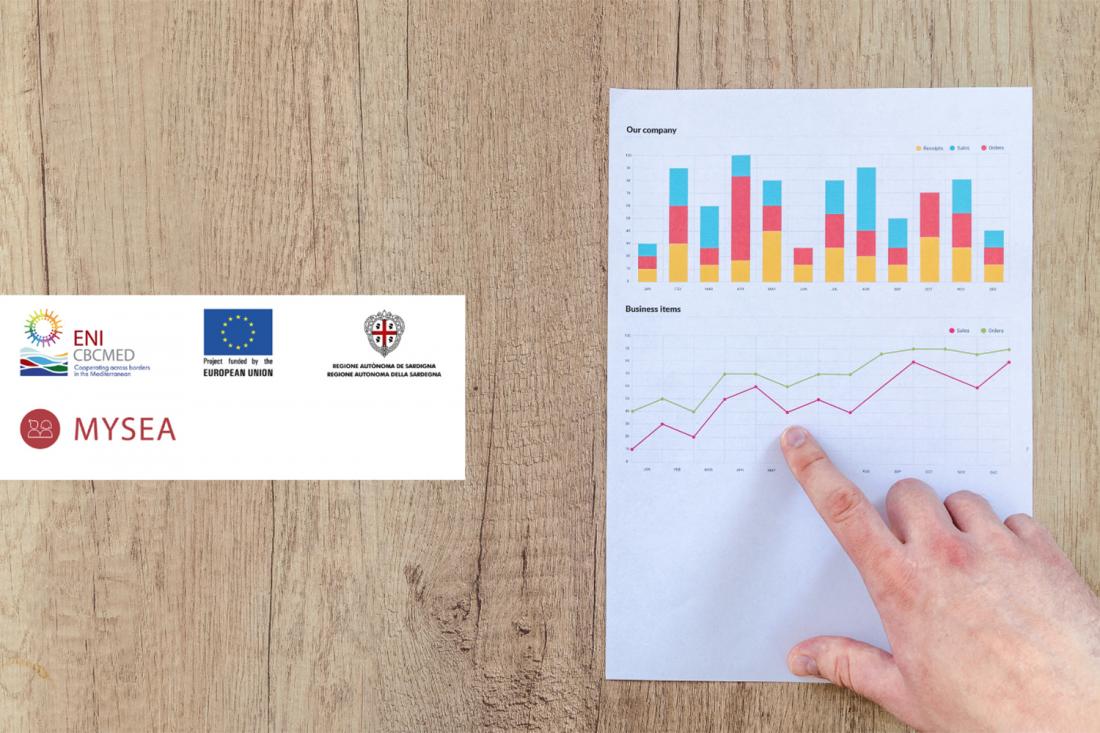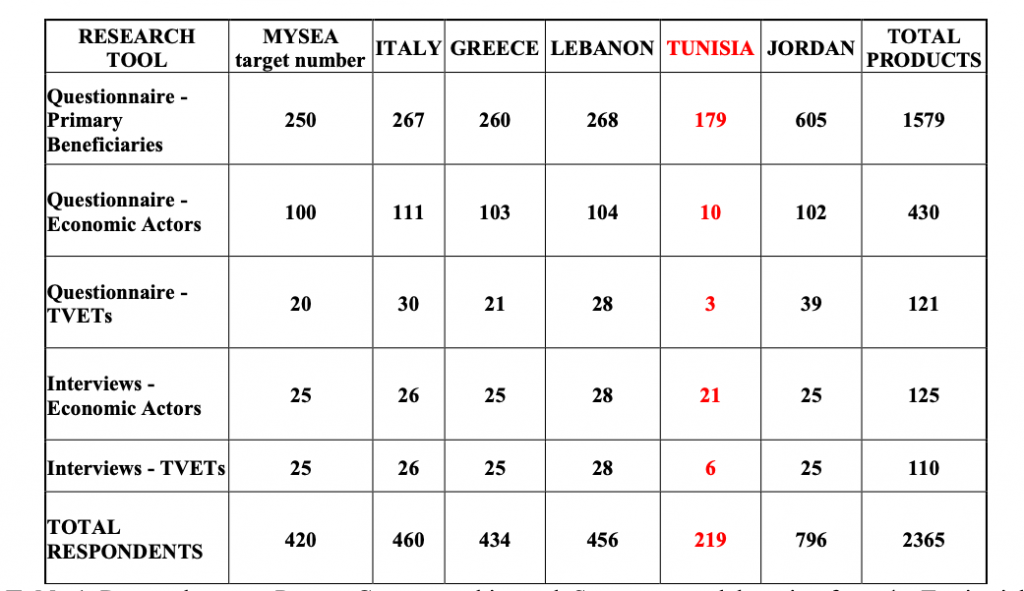MYSEA conducted a survey with 2300 questionnaires on NEETs needs in the blue and green economy sectors

What is the situation of NEETS (young people and women who are not in Education, Employment, or Training) in Italy, Lebanon, Tunisia, Jordan and Greece? Who are the economic actors in the blue and green economy?
MYSEA project replied to these questions through a survey with 2365 questionnaires and interviews that allow to understand the current condition of NEETs, to discover the characteristics of economic actors in the agri- food sector and in the waste management industry and the situation of education and training institutions in each country.
1579 surveys have been carried out to Youth (18-24 years old), Women (at all ages) and NEETs (up to 30 years old) taking into account information about: gender representation, age, educational history and personal skills, employment situation, occupational interest, motivation, intention to work in the agri- food Sector and/or in the waste management industry and desire to acquire the skills defined for each sector. These categories are actually facing high unemployment rates, have scarce work opportunities (especially the graduates and the skilled youth compared to their level of qualifications), have lower quality jobs and are paid lower wages (especially women) compared with the average.
430 questionnaires and 125 interviews have been carried out to the economic actors in the agri-food sector and in the waste management industry in order to better understand what employers are looking for in terms of in-demand skills and what the companies are offering in terms of new professional opportunities which are eventually emerging in the Green and Blue Economy.
121 questionnaires and 110 interviews have been carried out to Technical, Vocational Education and Training (TVET) institutions in order to understand their role in skills development and career coaching. Many questions were based on their training and mentoring activities because with their capacity to intercept market trends and to support the definition and spreading of new occupational profiles, for aligning the education curricula with the labour market demand and for bridging the gap between skills demand and supply.

Table 1. Respondents per Partner Country and in total. Source: University of Palermo Department of Agricultural, Food and Forest Sciences (SAAF) from the Territorial Analysis of PPs Countries.
Through the survey to economic actors and TVET, it has been possible to identify the emerging practices in the agri-food and waste management sectors, the main skills requested by the companies, the main job profile and/or vacancies in both sectors.
The summary of the findings from the national questionnaires and interviews is collected in a Territorial Analysis document for each country (Italy, Lebanon, Greece, Tunisia and Jordan) that describes in depth the national context and the existing situation.







